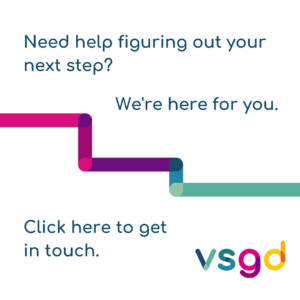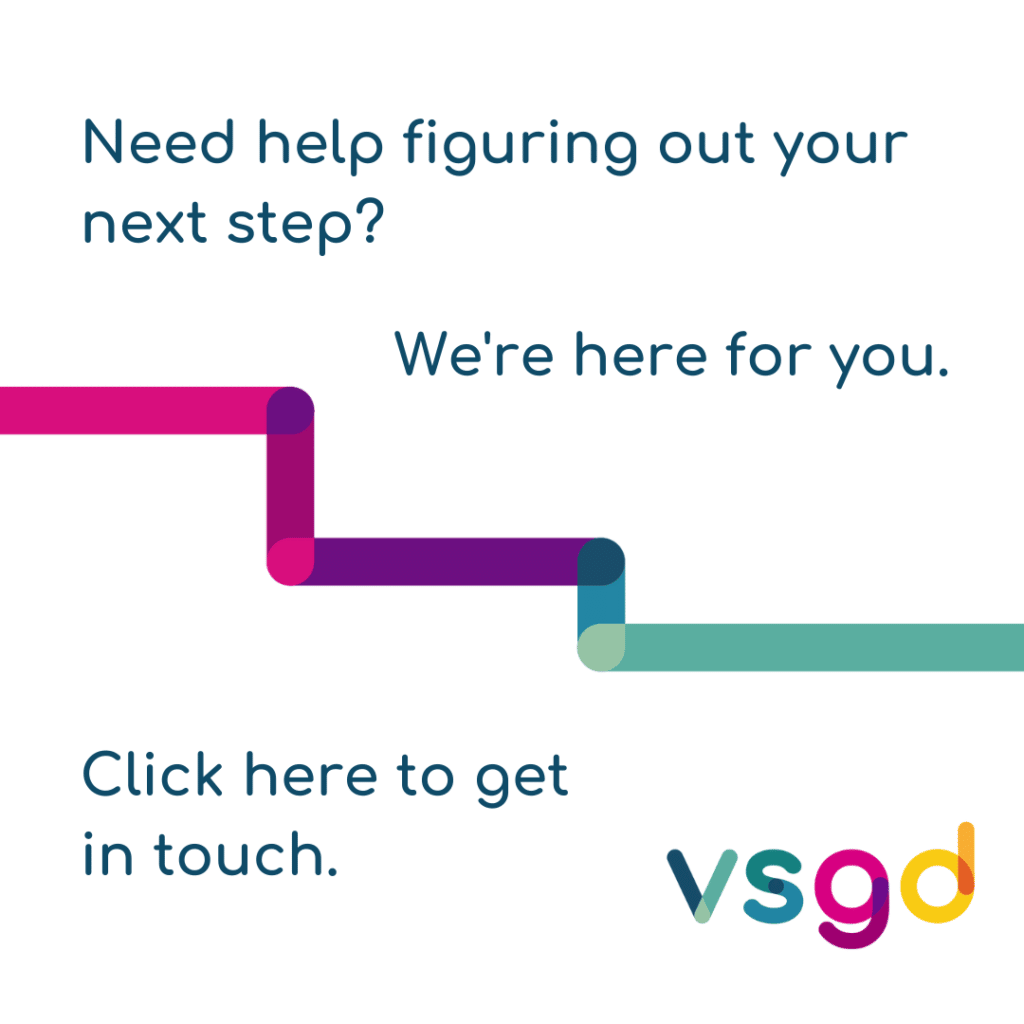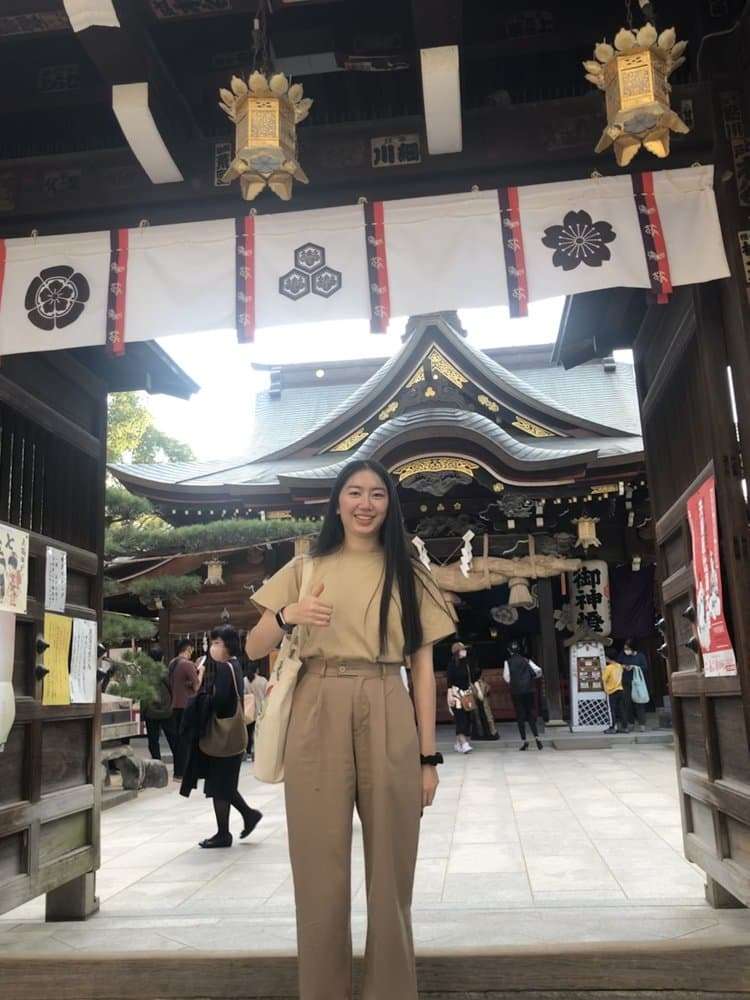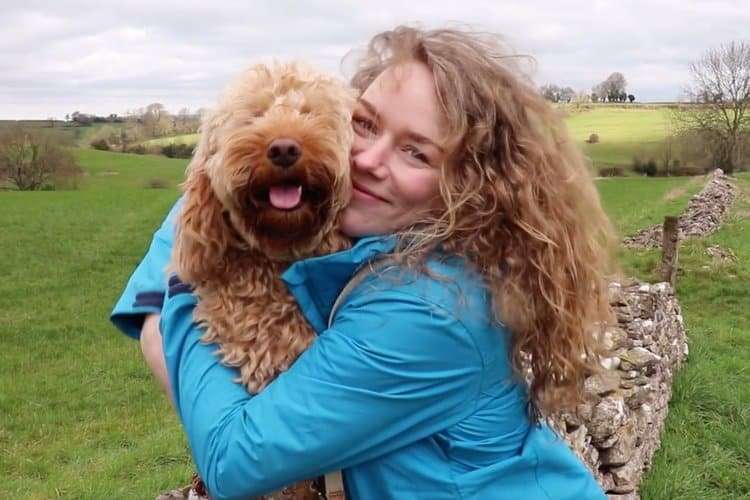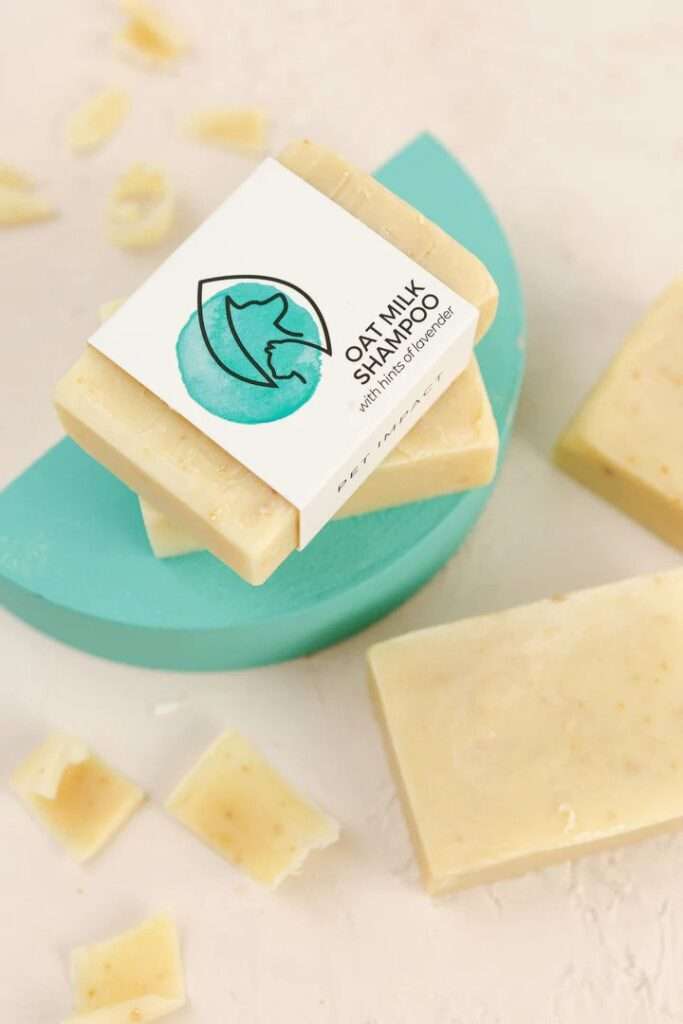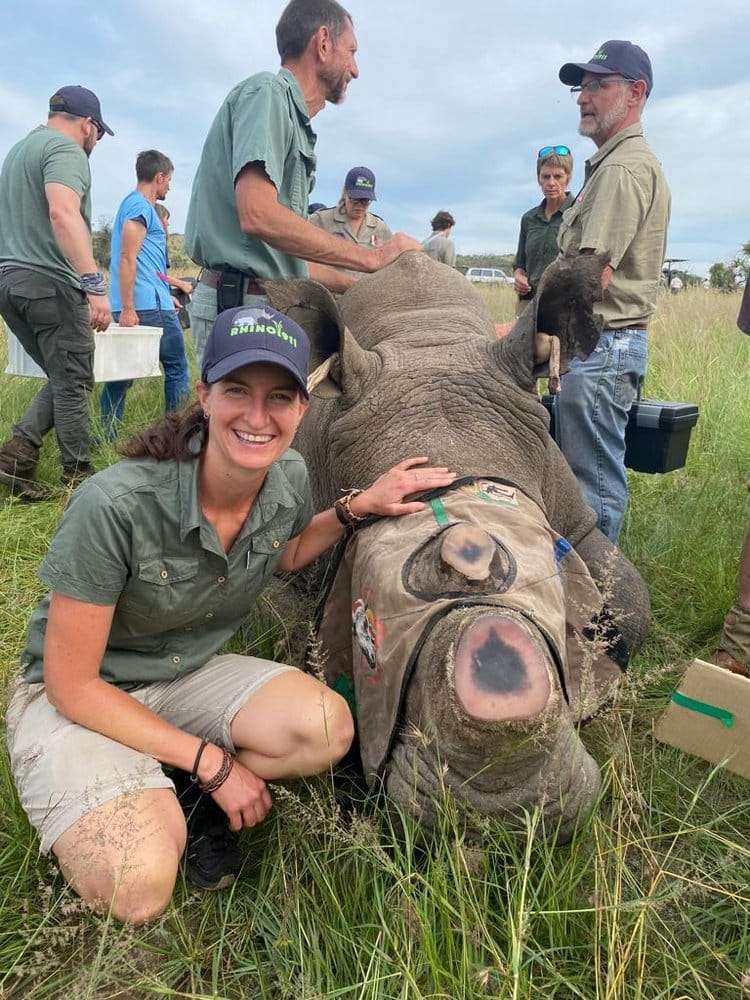Author: Remi Onabolu
-

If You Are Feeling Lost, Start Here.
Continue ReadingRead Time/Watch Time
10 minutes
Who should read this?
Veterinarians, vet nurses, vet techs
Author(s)
VSGD
Region
Global content
If You Are Feeling Lost, Start Here
1. Take a deep breath.
It’s not uncommon to feel a bit overwhelmed, whether this is stemming from dissatisfaction in your career, frustration around not knowing what steps to take first, or stress about how to fit in something this important around a busy schedule.
The good news is that there are plenty of people just like you who have been there before and know what you are going through! We are building a supportive community to help guide you through this so that you can ultimately find the career path that is right for you, whether that means Staying in practice, Going on to new pastures, or Diversifying within the veterinarian field.
2. Create your candidate profile.
Take action and craft a standout candidate profile with us. This is the ultimate way to showcase your unique abilities to potential employers, whether you’re seeking to make a career pivot or looking to document your experiences and competencies for negotiating promotions or salary increases. We also encourage people to put themselves out there (if you don’t ask, then you don’t get). Reverse Recruitment is a great way to find a role that was built just for you.
Employers also have the opportunity to showcase their business values by creating company profiles.
3. Let us help with your job search.
At VSGD, we have launched a jobs board that provides you with a variety of roles to choose from based on your needs. We firmly believe in the importance of transparency and flexibility in negotiations between companies and their future employees. Our job board features a range of clinical and non-clinical roles, with options for both full-time and part-time positions, as well as the ability to work from home. Be sure to explore our “Interview the Boss” sessions to gain further insight into the employers.
4. Check out our career coaching services.
We offer a dynamic developmental group coaching programme to help veterinary professionals gain the support and clarity to take control of their own careers, empowering them to identify their next steps towards a career that works for them. This is in partnership with VDS Training and guests. Find out more information here. Looking for 1-1 coaching for instant results? Check out our career coaches here.
5. Think about all your transferable skills.
Write down all the things you are good at, enjoy and would like to do more of. It’s important to focus the things you WANT to do, the things you feel passionate about or feel naturally drawn to rather than just the things you dislike or want to rule out.
To become a veterinary professional you will have no doubt garnered an amazing skillset unique to you. Think about all the experiences you have had that led you to this point. Many of these skills are transferable inside and outside the clinic, for example:
Client management, team management, ability to work both alone and in a team
Empathy, patience, resilience
Problem-solving, critical thinking, ability to learn quickly
Teaching, mentoring, leadership
Sometimes it’s hard to work out what you want to do with all these skills. VDS Training advisors Carolyne Crowe and Penny Barker present this webinar on “Working out what you want” in conjunction with VSGD.
You can also check out the excellent session from VSGD LIVE! by Adrian Nelson Pratt on “Stop Selling Yourself Short- A CV and Interview Clinic” if you want help to dust off that CV into something that sells YOU!
Need further CV/Resume support? Invest in yourself by looking at our CV review and branding packages.
6. Find your ‘people’.
It never hurts to expand your social and professional network. Which is precisely why we run fantastic events to facilitate this! VSGD celebrates the diversity of talent, expertise, and skills originating from the veterinarian profession. The VSGD groups are intended to provide a forum for free, independent and safe exchange of information between veterinary professionals considering diversification of their careers as well as for professionals to receive advice on how to remain satisfied in the clinic. Taking action and surrounding yourself with other career pioneers in the community can really give you the spark that you may need. Come to an event or chat with us in the VSGD online forums – we’re sure you’ll find people you vibe with!
Vets: Stay, Go, Diversify – North America
Vets: Stay, Go, Diversify – Down Under
These are closed groups, not directly available to the public. Membership of the groups are limited to those with direct interest in the aims and objectives of the group. Members must have a vet degree, a qualified nursing/tech degree, or be students of respective training.
7. Check out our resources.
We have compiled career interviews of career pioneers, as well as practical blog posts on pertinent topics to help motivate you and online courses for support on landing that job and understanding the power of negotiation.
We also offer Secret Support for anyone wanting to ask a question to our community anonymously. Secret Support allows for safe, open, honest and anonymous discussion of sensitive topics with other members of the community. We cover all kinds of topics and welcome any kind and constructive comments regardless of viewpoint. You can simply post anonymously in our Facebook group.
8. Let’s stay connected.
Subscribe to our weekly newsletter and stay ahead of the game with the latest events, job postings, and words of wisdom on how to uplift and fulfil your career. Trust us, your inbox will be filled with career inspo that you won’t want to miss.
Need more help?
We are here to help. We have an amazing, supportive community, and tonnes of resources! Email us and let us know what you need. We’ll do our best to point you in the right direction.
Curious to know More?
Subscribe to our newsletter and never miss our free events, resources, and tips!
-

Careers & Compassion: The Ingredient We All...
Continue Reading- Event replay
Careers & Compassion: The Ingredient We All Need To Serve To Ourselves
Join trainee psychologist Sarah Corthorne, clinical psychologist Katherine Wakelin, and veterinary lecturer Megan Davis as we discuss the importance of compassion and self-kindness in our profession.
Posted: 08/03/2023
Location
Global, Online
Dates
21st March 2023, 19:00 GMT
Speakers
Sarah Corthorne (trainee Clinical Psychologist, University of Surrey)
Katherine Wakelin (Specialist Clinical Psychologist, NHS Trauma Service & University of Surrey)
Megan Davis (Lecturer in Veterinary Clinical Practice, University of Surrey)Careers & Compassion: the ingredient we all need to serve to ourselves
Compassion is the foundation of understanding and connecting with others. Trainee Clinical Psychologist Sarah recognised this and sought to continue the impressive research conducted by Specialist Clinical Psychologist Katherine in 2022. Together with Vet Megan Davis, they are conducting a research project that investigates the effectiveness of a two-week compassionate imagery course in reducing negative feelings of self-criticism and work-related anxiety among vets and vet students. Join us as we explore the vital role of compassion in promoting kindness and well-being, not only towards others but most importantly, towards ourselves. Embracing the power of compassion can truly enhance our careers and enrich our lives.
Join this discussion to hear about:
- Career collaborations in vet and human health
- Up-to-date research supporting veterinary mental health
- Ways you can get involved to help develop useful mental health resources
- How to get involved in their workshop at BSAVA Conference this year
The study is open to all vets and vet students worldwide. Those who want to participate can express their interest here. Participation involves completing an initial survey and watching short videos (10-15 minutes) daily for two weeks (you may not be immediately chosen for this), during which you will also be required to complete a short exercise. After completing the video series, you will receive a follow-up survey, as well as a survey at 4 and 8 weeks post-intervention.
You may also want to check out Katherine’s preliminary study from 2022, entitled ‘Feasibility and efficacy of an online compassion-focused imagery intervention for veterinarian self-reassurance, self-criticism and perfectionism‘.
Sarah Corthorne:
I am a Trainee Clinical Psychologist in my second year of the PsychD programme at the University of Surrey. This involves working part-time in the NHS on clinical placements and conducting research for my thesis. I have experience working with a range of mental health difficulties in adults and young people. I am currently running a randomised control trial to explore the effectiveness of a two-week, online compassion-focused imagery intervention to improve mental wellbeing in veterinarians. My interest in compassion started in 2018 when I led a research project to explore whether shame can attenuate the efficacy of compassionate imagery.
Katherine Wakelin:
I am a Specialist Clinical Psychologist in an NHS trauma service for Military Veterans. I am trained to work with a wide range of mental health difficulties and am particularly passionate about Compassion Focused Therapy for high levels of shame and self-criticism. Alongside my NHS role, I work part-time as a Research Fellow at the University of Surrey. Within this role, I recently won Sarah Brown’s Mind Matters 2022 research grant to extend my doctoral thesis research in veterinarians. Therefore I am now supervising trainee Sarah Corthorne’s thesis research investigating the effectiveness of a Compassion-Focused Therapy course for veterinarians. It has been very positive to see how welcomed our research has been within the veterinarian community, and I am excited to see the potential impact.
Megan Davis:
I qualified as a vet from the Royal Veterinary College in 2012 and spent 6 years in clinical practice, before moving into education and starting a role working with the final year vet students at the University of Surrey. I have a huge passion for mental health and wellbeing, and a large part of my role is providing pastoral care to students. Back in 2019, I started working with the team at the School for Psychology at Surrey, initially to ask for their input on a session we wanted to run for our final year students. This turned into a much wider conversation and ongoing collaboration, which continues to this day!

Curious to know More?
Subscribe to our newsletter and never miss our free events, resources, and tips!
-

Cecilia Tat – Intern at the World...
Continue ReadingSalary
< £15k, It is an unpaid internship, and will need to be funded by oneself.
Travel
Train/underground to commute to the office for work, can work from home when necessary.
Values
Independent learning, Communication & Teamwork
Region
UK/Japan
Essential Skills
Background in, or working towards an animal-related qualification, ideally veterinary medicine;or in disease-related qualification
Contact
Cecilia Tat
Check out our Career Q & A questions below to take a deep dive into this career path. If you’re interested in this type of career but unsure how to take the next step, click below to learn more about our services designed to support you.
Read Cecilia’s blog article on the BVA- Joining the one health army
Explore the WOAH website
Explore the One Health EJP website
The Academy of Medical Sciences – INSPIRE Program
During my veterinary studies, I was engrossed with One Health after my fourth year module on One Health and Epidemiology, and more so due to the Covid-19 pandemic. The concept of “One Health” recently became more prominent in the public eye as a result, which affected every aspect of our lives. Following this, I was involved in a research project about ‘SARS-CoV-2 surveillance in wildlife in the UK’ in the CORVIN project with the OHEJP (One Health European joint programme) in the summer after fourth year going into my final year of vet school. For my final year rotations, I elected for the ‘One Health’ elective which opened up an opportunity to attend a One Health Summer school in Uganda prior to my graduation.Throughout my final two years of vet school, I had emailed to apply for the internship, and been in contact with the World Organisation for Animal Health’s office in Japan. And after a lot of correspondence, I started my internship after graduating as a veterinary surgeon with the World Organisation for Animal Health, Regional Representative for Asia and the Pacific.Currently, the best bit is enhancing my knowledge by ten-fold as to how international organisations work, what work they do and how they execute it. WOAH Regional Representative for Asia and the Pacific typically communicates with a lot of individuals from countries in the region in arranging technical and capacity-building support. Being a part of these activities is fulfilling as it will further benefit more people in these countries. Another great point about being an intern here is to be able to have an opportunity to develop skills in other fields other than just in a certain field (i.e. One Health). For example, I am also picking up skills in communications as well as knowledge of international relations.
There are not many downsides at the moment! I would say sitting in an office is a little bit of a downside but the desks can move up and become a standing desk so that isn’t too much of an issue!Throughout the week I am tasked by my mentor and other colleagues, if they require assistance, in assisting their projects/missions in different countries. I mainly have to help logistically if they are arranging an in-person or online activity/mission, help proofread official documents, and write articles/reports if necessary on their activities to be posted on the site. Occasionally there may be a conference to attend as a representative of WOAH, and in this case, I was able to attend one in Fukuoka which was kindly funded by the INSPIRE award.Someone who is really interested in One Health and how it is operationalised, in international work, and in political/global relations.Trying to get the visa, as well as sorting out funding to come here. I was gratefully funded by the Turing scheme as well as the INSPIRE award.1. Get engrossed with One Health related activities (at university for example!)2. Read up on One Health related issues/ literature3. Be interested in the region you’ll be working in!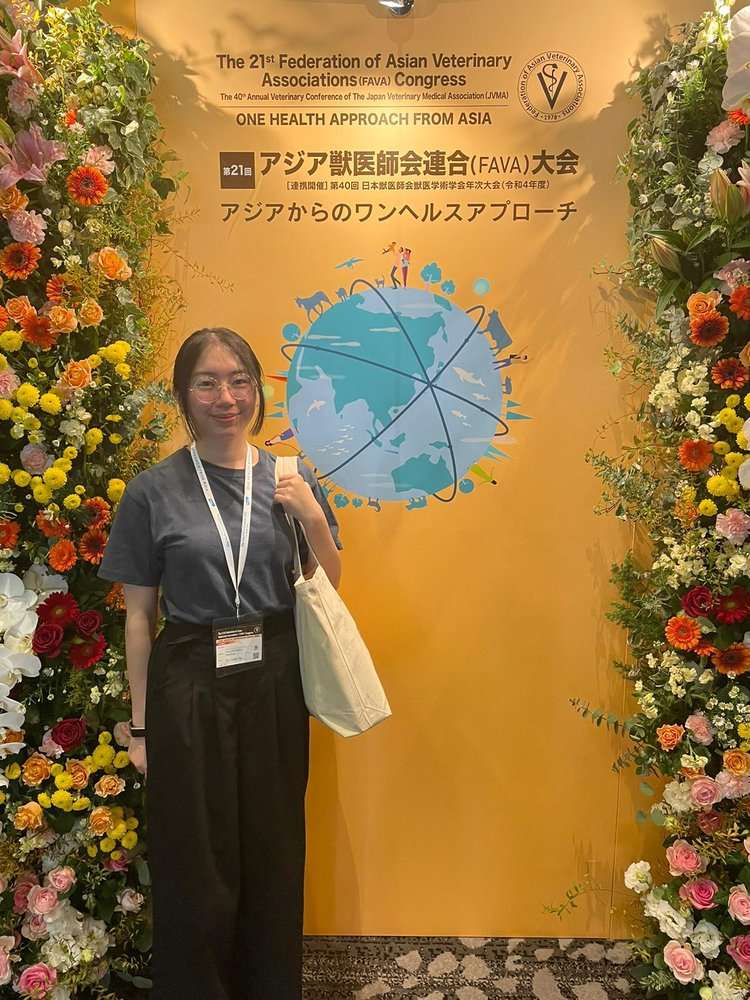
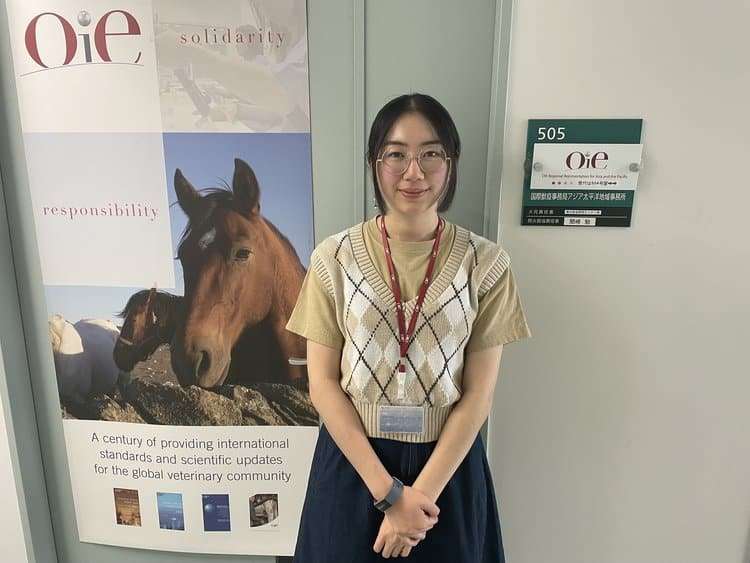
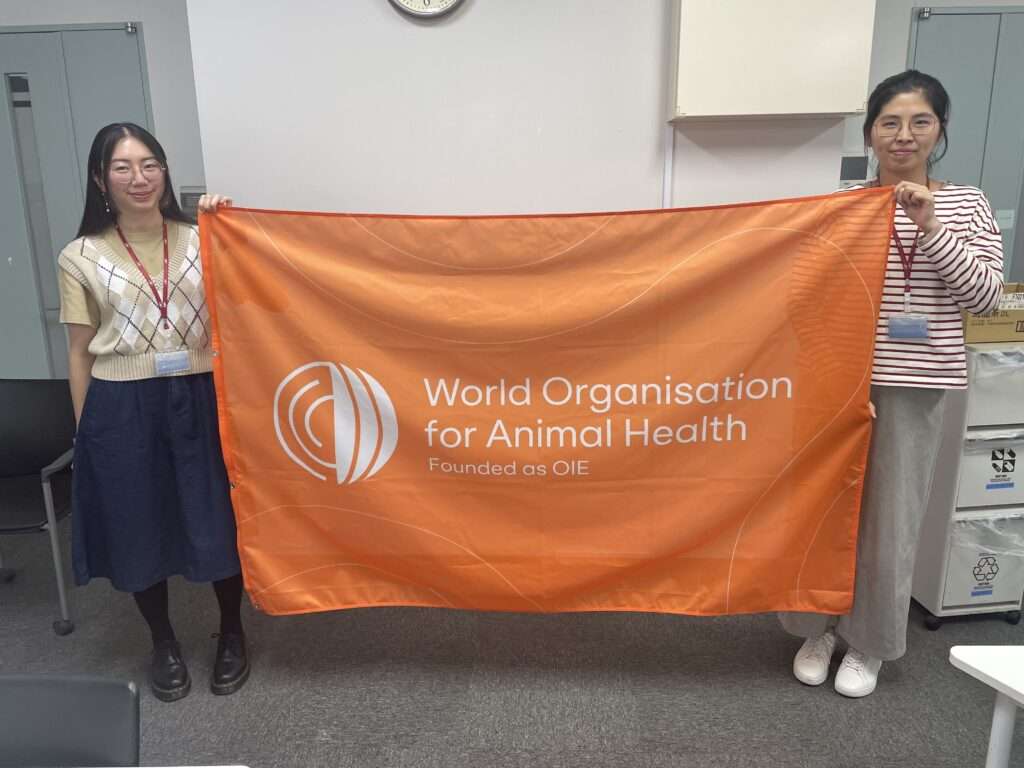
Curious to know More?
Subscribe to our newsletter and never miss our free events, resources, and tips!
-

Amber Fielden – Sales Executive for Meetings...
Continue ReadingSalary
£31-35k (starting salary for someone inexperienced)
Travel
Have to travel for every meeting once I have booked them. I am reimbursed for any travel.
Values
Independence
Region
UK
Essential Skills
Previous customer facing role, Confidence & Time management skills
Amber Fielden
Check out our Career Q & A questions below to take a deep dive into this career path. If you’re interested in this type of career but unsure how to take the next step, click below to learn more about our services designed to support you.
I worked as a nursing assistant when I was 15 after school until I went to university to do my veterinary nursing degree. I absolutely fell in love with the veterinary profession and applied to university to do veterinary nursing.After 8 years of being qualified, I decided I needed a new career, with a better salary and less stress. I applied for multiple jobs however I decided to do work experience at the hotel I work at, just to learn more about the events profession. A few months later, a job came up and I applied and got offered an interview as I was proactive in doing the work experience.I had limited sales experience and no experience in coordinating events and meetings. There are some degrees and courses you can do to have a better chance of entering the profession but I was lucky enough to be given the opportunity.I am now a sales executive for meetings and events at a hotel in Farnborough. This role is very sociable and I get to meet lots of people, as well as attend networking events and entertain new and current clients. I reach out to a lot of companies via email every day as well as event planning agencies. I arrange meetings to then introduce myself and the hotel, showcasing what we have to offer here.Someone confident, charismatic and loves meeting new people.Yes. I had no experience in this profession but using proactiveness and initiative landed me this role.1. Work experience at a few places to get a feel for the profession2. Look at the different roles within this profession as there are so many I’d never even heard of3. Be confident – you can learn on the job to a certain degreeI knew that if I left the veterinary profession, I would really have to work hard to make it work. I have a mortgage and my own animals to look after, so I couldn’t fail – which was the reason I did the work experience first.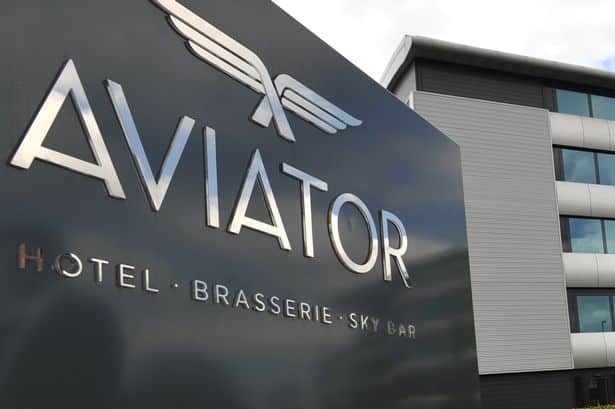
Curious to know More?
Subscribe to our newsletter and never miss our free events, resources, and tips!
-
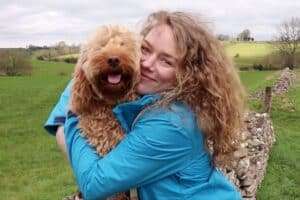
Alice Judge – Co-founder of Pet Impact
Continue ReadingSalary
< £15k - We still haven't taken any money from the business yet! But this is to be expected when starting out
Travel
Mostly working from home and occasionally at warehouse
Values
Creativity, Leadership & Resilience
Region
UK
Essential Skills
Growth mindset, Problem solving, Some business experience/knowledge is useful but you can teach yourself
Contact
Alice Judge
Check out our Career Q & A questions below to take a deep dive into this career path. If you’re interested in this type of career but unsure how to take the next step, click below to learn more about our services designed to support you.
Check out the Pet Impact website, Instagram, Facebook and Facebook group.
After graduation I started work as a first opinion vet in mixed practice. Initially I really struggled due to the lack of support and thought I wouldn’t last a year! However things improved when I changed jobs. My partner and I started Pet Impact as an Amazon business in 2019 alongside our full time vet jobs. We’ve only really started pushing the business at the end of 2021, when we reduced our vet hours to 3 days a week.It is really Gavin (my partner) who is business minded and it was him who had the drive to create his own business. I’ve always been hugely passionate about sustainability and I’ve wanted to make a bigger impact for a long time but I wasn’t sure how. I also wasn’t sure whether vet work was going to satisfy me in the long run, due to this desire.
When my family bought their first dog, Gavin and I became more aware of the environmental impact of pets, leading us to develop our first product – reusable puppy pads a.k.a. ‘inco’ pads and the rest is history!You don’t really need any qualifications or experience to become a founder of a company but some things certainly help! Of course, you need an idea, or rather, a problem that needs solving. On a practical level, you do need money! Fortunately we had some of our own as well as family donations! A bonus to starting up an Amazon business is you don’t need as much money, but a downside is slower growth. Gavin did read a lot about Amazon and business in general while starting out.
On a personal level, you have to be very passionate, driven, disciplined and resilient! Because running a business is basically overcoming one challenge/problem after the other. You need to be able and willing to overcome failures and setbacks and not let them de-motivate you.The best bit is being able to pursue something I’m passionate about and interested in, and feel I’m making a genuine difference in the world. I know the environmental impact of pets is a very small piece of an enormous problem but at least I feel like I’m doing something instead of nothing. The next best bit is being my own boss and the sense of ownership and control over my own time and work. I have freedom to take the business where I want it to go and make it my own. It also gives me a creative outlet.
One downside is the amount of work – it’s a lot of early mornings, late nights, weekends, etc. I also feel business (and being self-employed) is not as secure as vet work. Things like new competition can arise or economic recessions that can impact it. This gives me a sense of anxiety sometimes, especially because I’m so invested in it.To be honest, capital is the biggest one. We were incredibly fortunate to have help from our families and a little money from our jobs. If we didn’t we would have looked for investors.This is difficult as every day is different! But we usually start by planning our day and prioritising tasks. We still spend some time strategizing and coming up with new ideas. Roughly half the day may be dedicated to the day to day running of the business e.g. answering emails, packing orders, social media. The other half may be dedicated to growing/improving aspects of the business, e.g. optimising website, creating ads, product/market research, creating content, reaching out to retailers and so on. All of this is from home and occasionally we go to the warehouse to receive/send out shipments.A driven, resilient and creative individual who has self-confidence and self-belief. Needs to be a good communicator and leader.1. Define the idea or problem you want to solve and who you want to serve.2. Speak to people and do your research around the topic/problem.3. Define your goals and make a plan to achieve them.Don’t let your lack of knowledge stop you – you can learn by doing! Don’t be afraid of failing repeatedly and don’t compare yourself to others or let success stories distort your expectations (i.e. it doesn’t happen overnight!).
Make sure you want it enough, be clear on your goals and why you’re doing it. If you can find a business partner who matches your passion and commitment – that will help you enormously or join communities of entrepreneurs online.Conservation Veterinarian
Conservation Veterinarian
Conservation Veterinarian
Curious to know More?
Subscribe to our newsletter and never miss our free events, resources, and tips!
-
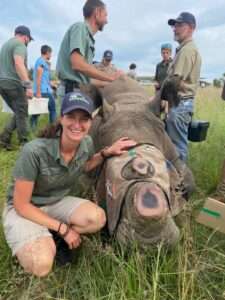
Jennifer Lawrence – Conservation Vet
Continue ReadingSalary
This varies depending on where you are working. Working for an NGO, zoo, government or private company will dictate salary - Working in conservation is not lucrative in terms of salary expectations
Travel
It depends on the projects and interventions required. Can range from a few days to a couple of weeks.
Values
Adaptability, Resilience & Creativity
Region
South Africa
Essential Skills
Veterinary skills & Experience of the behaviour of the animals you're working with most of the time
Contact
Watch Jennifer Here
Watch back the inspiring career Q&A with Jenny!
Jennifer Lawrence
Check out our Career Q & A questions below to take a deep dive into this career path. If you’re interested in this type of career but unsure how to take the next step, click below to learn more about our services designed to support you.
See what Jennifer has been up to on Instagram.
I started out as a small animal veterinarian and found that this was not the career for me. Small animal practice has however been an easy career to fall back on when I needed extra financial support. I have not completely moved away from this and do a bit of locuming when not doing conservation work.Some of my earliest memories as a little girl are of the bush and the big outdoors. This grew into a passion which took some time to grow and I only recently started nurturing it fully. I had moved through several different careers in veterinary including smallies, equines and industry. None of these really felt as though they fit. As I have journeyed through life and become more in tune with what I want the highest future possibility to be, I understood that my purpose and my career needed to align. And this is when I realised that conservation is where I want to go.Transitioning in to conservation, especially as an older vet is not easy. Knowing this and accepting the challenge is the biggest way forward. Continuously knocking on doors of possible opportunity and growing my network was key to get me where I am today. Enrolling in a masters in conservation medicine has also helped me along the way.One of the best parts of doing conservation work is knowing that I am a part of something that is so much bigger than me. The knowledge that I am serving a greater purpose is what keeps me passionately committed. Working in a complex environment with many different disciplines is also something that I find exciting. No one day is the same and being open to adaptability and initiative is essential. One of the down sides is that work is not consistent and there can be many times when income is restricted. This is when I fall back on small animal locum work.No day is the same doing conservation work. Many of the interventions and management captures require prior planning. Even with this, you need to be adaptable and ready to change plans at the last minute. Emergency capture and treatment also vary depending on the species you’re working with. At times you may have to be on standby until the animal you are wanting to work with is located. Sometimes there are many hours of travel and waiting between captures. A different level of patience is required for this kind of work. And while many days are spent in the field, in beautiful places, there are days spent in the office doing administrative work as well.I think one of the keys to unlocking a career in conservation is having a deep passion and commitment to a higher purpose. A sense of adventure is paramount and acceptance that there may be many days spent away from home. To be able to really understand the ways of conservation, you need to be open to the complexity and challenges that come with it. A level of resilience is required especially given the detrimental state of our natural world. Active hope is required to meet this and a knowledge that you are doing your best.1. Start creating a network of people and organisations that interest you and get your CV to them2. Volunteer your time in areas of conservation that interest you3. Connect with other vets who are in conservation and be willing to learn from themIf you have the passion and commitment to take up the challenge you will find your way into this journey. Be willing to continuously knock on doors and network as much as possible. Be open to volunteering in aspects of conservation that interest you. Find a good mentor or two to guide you. There will be times when you may find you hit walls trying to find your way into conservation, but see those times as lessons and find out what the walls are telling you. There is so much to learn while on the journey. Most of all enjoy the experiences you have while finding your way. Some of them will be more special and meaningful.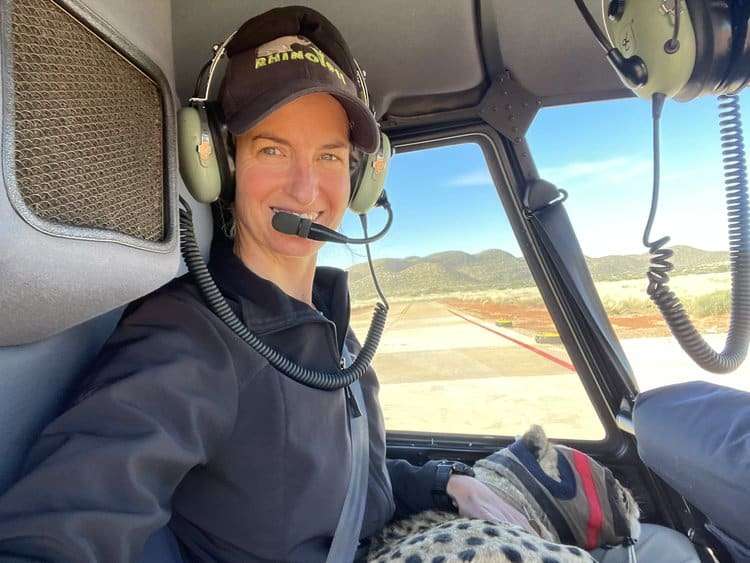
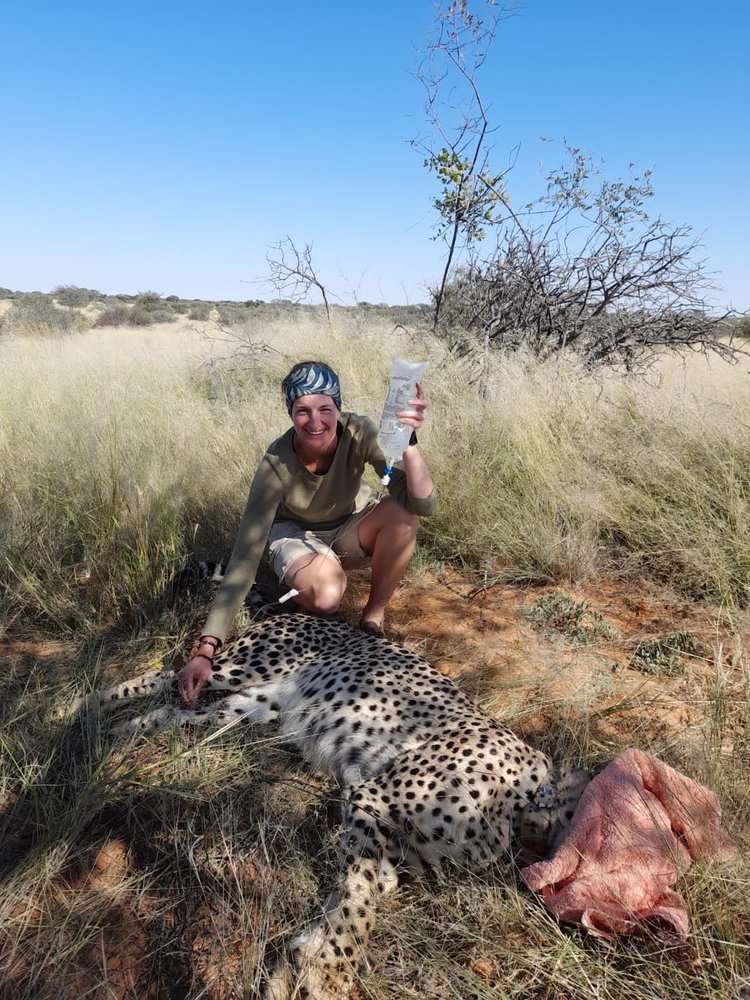
Curious to know More?
Subscribe to our newsletter and never miss our free events, resources, and tips!
-

Rob Williams – Head of Talent, VetPartners
Continue ReadingSalary
£60K+
Travel
Lots of national travel (1/week), occasional international travel
Values
Empathy, Compassion, Creativity
Region
UK
Essential Skills
Prior management experience, CIPD qualification
Contact
Rob Williams
Check out our Career Q & A questions below to take a deep dive into this career path. If you’re interested in this type of career but unsure how to take the next step, click below to learn more about our services designed to support you.
I’ve had a really varied career clinically including completing a rotating internship at Glasgow Vet School and a surgery residency in private practice. The bulk of my clinical career was spent at Minster Vet Practice, York over 2 periods. In my second spell at Minster I took on a clinical director role just prior to the formation of VetPartners in 2015. I enjoyed focusing on surgery and improving both my approach to case management and improving my technical proficiency. However over time I started to realise that I didn’t really enjoy clinical work I found it repetitive and boringparadoxically I found the interaction with clients something I increasingly enjoyed.In early 2016 an opportunity presented itself to help establish the first graduate programme at VetPartners and following this I worked in a hybrid role for 2 years mixing clinical work with working in the People Team at VetPartners. In 2018 I left clinical practice and started to work full time for VetPartners. The enjoyment I had working with clients towards the end of my clinical career is even more fulfilled now working as part of the people support team at VetPartners.
Given VetPartners’ culture there weren’t any barriers and I’ve been very fortunate to be given a lot of freedom to work on projects I find interesting.I get to work with an amazing team of people every day, all working on the same objective of trying to support making VetPartners a genuinely great place to work. Genuine collaboration is a powerful thing and definitely one of the things I enjoy most about my role.Work in project mode is something I hate with a passion, I completely understand the need for structure etc, but I find it a real struggle!There is a lot of team leadership and supporting colleagues across the business, trouble-shooting and resolving problems for people. I spend a lot of time meeting people and listening, I think one of the skills I’ve really developed over the last few years is the ability to really listen. This is invaluable as you only really give yourself the opportunity to help if you truly understand someone else’s perspective.You have to be really adaptable and happy with a certain amount of organised chaos. Having bucket-loads of empathy and common sense really help too, so not being afraid to seek out other perspectives and change your view of something really help.I think anyone switching to a non-clinical role particularly working in a People Team (HR is a bit old hat) will have a ton of experience that is relevant and transferrable. Most people-related problems can be taught of in similar ways to clinical problems i.e. what’s the history, what happened, do we need to do any investigations, what can we do to help now etc.Curious to know More?
Subscribe to our newsletter and never miss our free events, resources, and tips!


